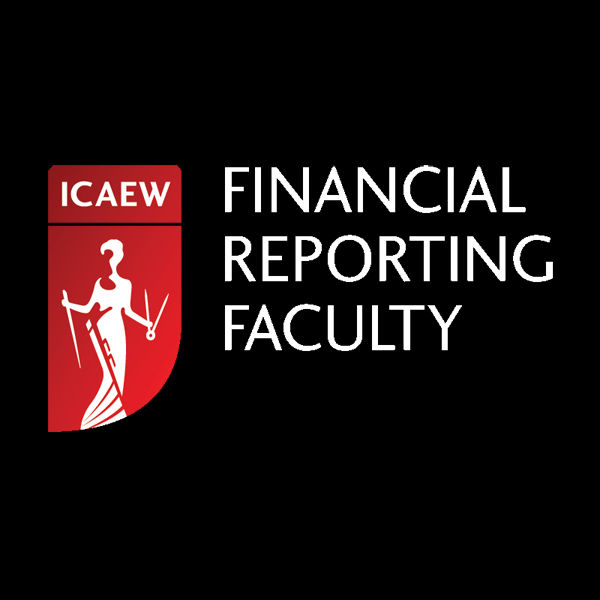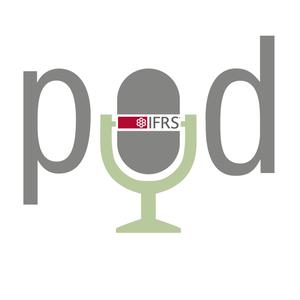
ACCA Insights
ACCA Insights
Thought leadership on the go
- 28 minutes 6 secondsRisk culture: Ensuring responsible AI innovation in healthcare
The discussion explores the intersection of AI and healthcare at MIT's Jameel Clinic. Ignacio Fuentes highlights their work in clinical AI, particularly in oncology, and drug discovery, including a new protein folding model. Frank Schuler emphasizes the role of accountants in building trust and managing AI risks in healthcare, suggesting future audits of AI systems. They discuss the importance of ethical decision-making, data quality, and regulatory frameworks. The clinic's global network of 43 hospitals aims to validate and implement AI models, enhancing early disease detection and clinical efficiency. The conversation underscores the need for collaboration among accountants, doctors, and policymakers to navigate AI's transformative impact on healthcare.
24 January 2025, 1:07 pm - 23 minutes 57 secondsRisk culture: Steering the future in the Middle East
The podcast discusses the integration of AI in healthcare across the Middle East, driven by initiatives like Saudi Vision 2030 and UAE AI Strategy. Yasir Ghani highlights the Emirati genome program, which uses AI for personalized and preventive healthcare. He emphasizes the challenges in implementing electronic health records, with 60% of healthcare organizations struggling. The conversation also covers the importance of cybersecurity, supply chain risks, and the need for robust risk management strategies. Additionally, Ghani discusses the evolving board composition in the UAE, with a focus on diversifying skills and expertise, and advises ACCA members to be strategic, proactive, and tech-savvy in their careers.
13 December 2024, 5:20 pm - 19 minutes 22 secondsRisk culture: Combatting fraud in healthcare
The discussion focused on fraud in the UK's NHS, highlighting its complexity and the need for robust risk management. Alex Rothwell, CEO of the NHS Counter Fraud Authority, detailed the extensive fraud landscape, identifying 124 types of fraud and corruption. Key risks include internal insider fraud, collaboration with external entities, and supply chain fraud. The NHS faces an annual fraud loss of £1.3 billion out of a £160 billion budget. Rothwell emphasized the importance of strategic intelligence assessments, proactive risk management, and international collaboration to combat fraud effectively. He also discussed the role of AI and machine learning in enhancing fraud detection capabilities.
24 October 2024, 10:18 am - 15 minutes 25 secondsRisk culture: Accounting for cyber attack losses
In this episode we speak with Nick Sanna, founder of the FAIR Institute and President of Safe Security, about using the Factor Analysis of Information model, the only international standard for quantifying and accounting for cybersecurity and operational risks, including pervasive third-party risks as the world witnessed with the CrowdStrike incident. Nick explains how healthcare organisations in particular could be using this at scale to better assess and manage potential cyber incidents, considering the high-profile cyber attacks at United Health and the UK's NHS and, indeed, our current research on risk management in the healthcare sector.
23 July 2024, 11:37 am - 25 minutes 6 secondsRisk Culture: The imperative of investing in behavioural insights
This episode discusses the why, how, and what of incorporating behavioural insights into corporate strategy and risk management. Our guests, David Grosse and Sandro Boeri, two seasoned experts who have been working on how to optimise such crucial information for many years, share their thoughts on how ACCA members can put this into practice.
10 June 2024, 9:48 am - 9 minutes 47 secondsRisk culture: How effective learning makes a difference
Attain and its unique Rising Tides ‘game experience’ underline the importance of collaborative learning and how it helps create a connected culture of sharing ideas and innovation. In this episode, Attain’s founder, Klaus Woeste, and its COO, Nick Reed, discuss what that means in today’s volatile, uncertain, complex, and ambiguous (VUCA) world.
22 May 2024, 1:56 pm - 18 hours 25 minutesRisk Culture: Whistleblowing, the pillar of resilience
Who better to talk about the power of whistleblowing and how our profession tackles the rampant rise of fraud than Emma Parry, a conduct, culture and risk advisor and core member of ACCA’s special interest group on risk culture and Pav Gill, the Wirecard whistle-blower who is now CEO and founder of Confide.
13 February 2024, 2:03 pm - 13 hours 39 minutesRisk culture: Conduct and culture MI 
We discuss their experiences and insights into developing effective conduct and culture management information in financial services and the insights that the review undertaken by FMSB members in 2023 provides. In particular, they draw on the many lessons that the research reveals and how these can be applied across industries.
24 January 2024, 3:17 pm - 19 hours 36 minutesRisk culture: How do we address behavioural risks?
Dr. Mirea Raaijmakers explains how developments in big data analytics and behavioural science are driving modern-day risk management within financial services. Mirea, who was one of the main architects of the Dutch Central Bank's pioneering approach of behaviour & culture supervision, also discusses how supervisors could be more up-close and personal with financial institutions when it comes to understanding the cultural and behavioural influences on performance.
15 December 2023, 5:36 pm - 19 hours 46 minutesAn introduction to compliance professional standards
This podcast explains how HMRC Compliance staff will work under the HMRC Charter with taxpayers including their Agents. We’ll be covering what the Compliance Professional Standards, how they link to the HMRC Charter and what taxpayers and agents should expect under each of the standard headings:Getting things rightBeing aware of taxpayers (and agents) situationBeing responsiveTreating taxpayers fairlyLet us know whether you found this podcast interesting and what other topics you would like to hear covered at [email protected]
5 December 2023, 9:02 am - 13 hours 41 minutesRisk culture: The power of leadership in today's turbulent world
As both an accountant and a psychologist as well as a member of ACCA's Risk Culture Special Interest Group, David explains how accounting professionals need to recognise the inherent blind-spots of the financial ‘lens’ and how a wider view can help detect leadership risk hot spots.
16 October 2023, 2:53 pm - More Episodes? Get the App
Your feedback is valuable to us. Should you encounter any bugs, glitches, lack of functionality or other problems, please email us on [email protected] or join Moon.FM Telegram Group where you can talk directly to the dev team who are happy to answer any queries.
 AccountingWEB
AccountingWEB
 Forget The Numbers: ACCA Student Podcast
Forget The Numbers: ACCA Student Podcast
 The ACCA & CIMA podcast
The ACCA & CIMA podcast
 Financial Reporting Faculty podcast
Financial Reporting Faculty podcast
 The IFRS Foundation podcast
The IFRS Foundation podcast
 ACCA: Technical articles
ACCA: Technical articles